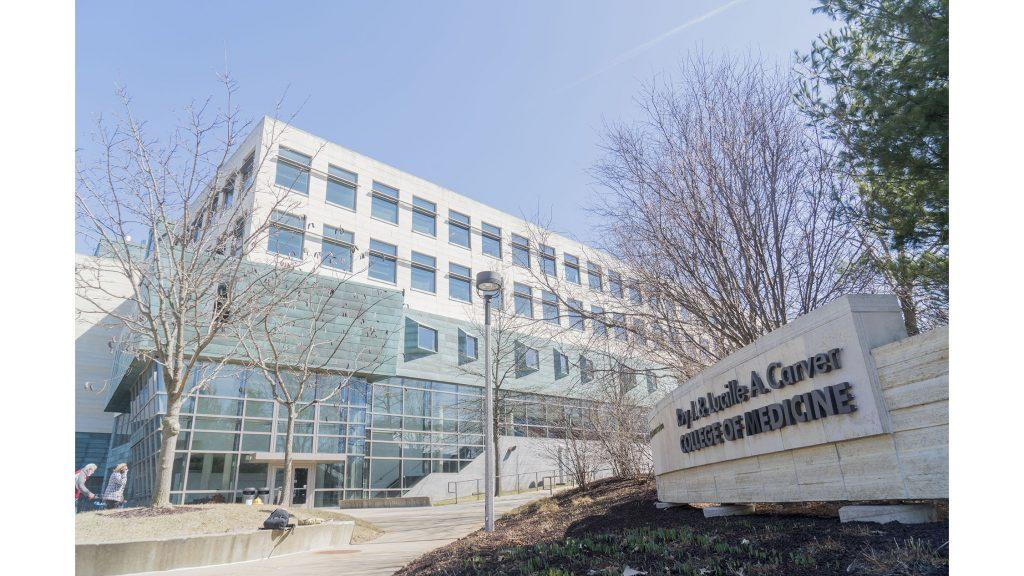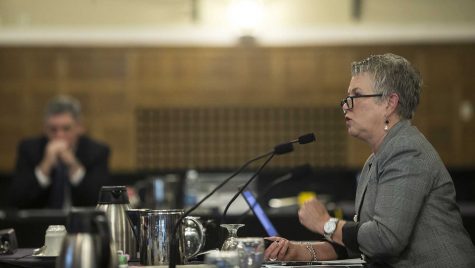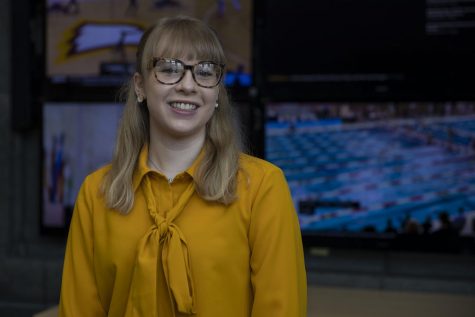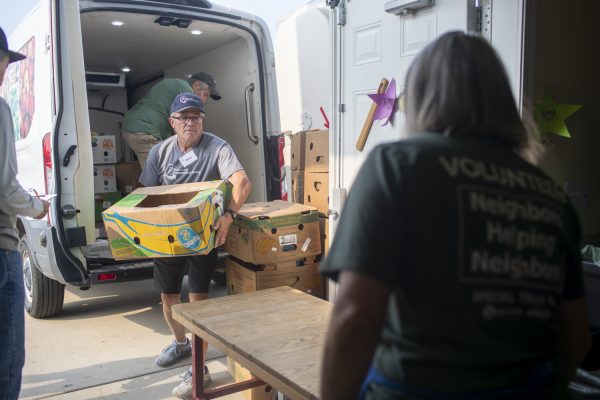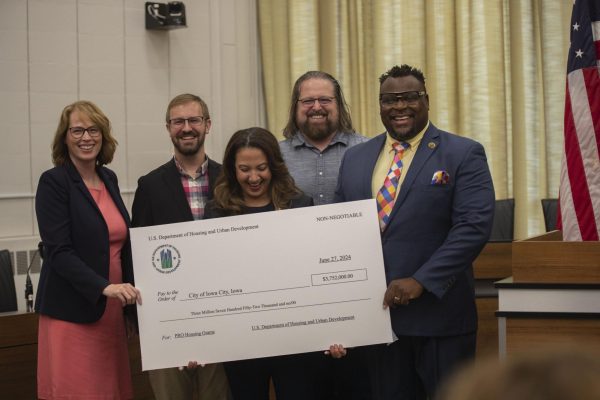UI-led neuropathy consortium receives grant renewal from National Institute of Health
The Inherited Neuropathy Consortium led by University of Iowa neurologist Michael Shy has received a grant renewal to continue studying inherited neuropathies.
The Carver College of Medicine is pictured on April 4, 2018.
October 23, 2019
As clinical research of medical technology advances, so will the understanding of genetic neurological diseases. The National Institute of Health has renewed the University of Iowa’s grant to study inherited neuropathic diseases.
The Inherited Neuropathy Consortium, located in the UI Carver College of Medicine, recently received a five-year $7.2 million grant renewal to continue researching inherited peripheral neuropathies in the hope of finding a cure for related diseases.
Peripheral neuropathies are disorders affecting the nerves that spread from someone’s back to their hands and feet, which can cause weakness and balance problems, UI neurologist Michael Shy said. Although these disorders have many causes, he said, a common cause is a genetic mutation that can disrupt the nerves.
Shy said the diseases are referred to as Charcot-Marie-Tooth type 1 or type 2, depending on which part of the nerve the disease affects. These diseases are fairly common and affect one in 2,500 people, he added.
“Up until 1990, there were no known genetic causes for any of these, although it was known that the diseases could be genetic,” Shy said. “Now there’s mutations in over 100 different genes that can cause these disorders.”
The consortium works with other institutions around the world to determine how these diseases change over time, identify other genetic causes of Charcot-Marie-Tooth, and train physicians to study and treat the diseases, Shy said.
With the grant renewal, the consortium will continue its study of how Charcot-Marie-Tooth changes over time through using different outcome measurements they have developed and new instruments allowing them to measure outcomes in infants, Shy said.
RELATED: UI doctors prepare to study obscure leading cause of death in refractory epilepsy
The grant will also allow researchers to continue to identify and study biomarkers in patients’ blood that are common for Charcot-Marie-Tooth, he said.
Even though clinical trials have been developed to treat the diseases, there is no cure, Shy said. The clinic emphasizes genetic counseling to help people understand their condition and the potential it has to pass on to other generations, he said.
Counselors meet with families to discuss genetic testing options, provide an understanding of what their insurance will cover, and an understanding of the various lab testing they will receive, said Shawna Feely, genetic counselor and clinic coordinator.
Feely is the consortium’s project manager and oversees the 20 sites involved. She helps research teams navigate protocols, understand the testing, and create uniformity in the way clinical trials are conducted.
RELATED: University of Iowa receives grant to improve statewide-maternal-health
“Any time you’re giving a genetic diagnosis, there can be an emotional element to the person or family in terms of family dynamics or feeling guilt that someone’s passed a genetic disease on, and so genetic counselors — part of the counseling part is to help families cope,” Feely said.
Genetic counselor Tiffany Grider said in an email to The Daily Iowan that a common question from patients is whether or not their child will have the same condition, and whether there’s a treatment for it.
“Researchers like Dr. Shy have spent decades learning the exact biological mechanism for how these diseases happen,” Grider said.
With the developing research and the grant, the future of the clinic and genetic testing will be in the hands of the next generation, Shy said.
“It’s this next generation of scientists who are going to take this to the clinic, so these are going to become treatable diseases,” Shy said. “And we need that generation to be well-trained to be able to develop [treatments].”



